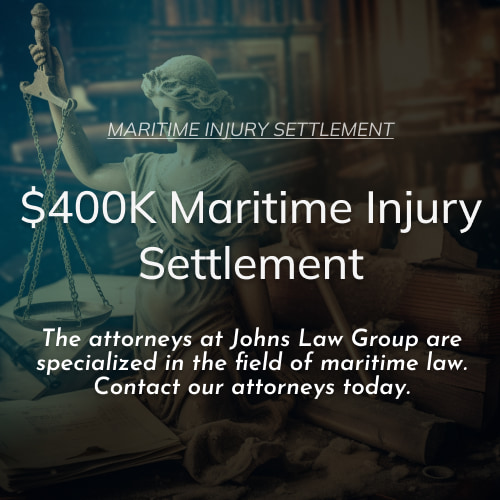
The Jones Act includes a key provision that allows seamen to sue their employer for injuries caused by the employer’s negligence.
This is an important aspect of maritime law that is designed to protect the rights of seamen.
However, many employers attempt to avoid going to court by having employees sign arbitration agreements.
Arbitration tends to be employer-friendly and results in lower recoveries than a jury trial.
Generally, Jones Act court claims tend to recover substantially more than workers’ compensation recoveries for similar injuries because an injured seaman’s economic damages are uncapped and an injured seaman can also recover damages for pain and suffering.
Normally, we are contacted by seamen and maritime workers about arbitration agreements in one of two situations.
The first is when the seaman’s employer is asking him to sign an Advanced Wage Agreement that includes an arbitration clause.
The second is when following an injury a seaman is being forced into arbitration.
The law governing these topics is complex and we ask that you contact Johns Law Group to schedule a free consultation to discuss your situation in greater detail.
However, we hope this article provides some guidance to the questions that you have.
What is Arbitration?
Arbitration is a form of alternative dispute resolution that is agreed (in the work injury context) by an employee and employer. The purpose of arbitration is to resolve any disputes (including work injury compensation) without going to court. While this may initially sound good and reasonable, there are many drawbacks to arbitration including:
- Waiving your right to a jury trial.
- Waiving your right to present your case in court before a judge.
- Having an arbitrator decide if your employer is responsible for your injuries and damages and/or deciding how much compensation you can recover.
- Being unable to appeal the arbitrator’s decision or award.
Employers Prefer Arbitration
Another broader problem with arbitration is the fact that many arbitrators tend to favor large maritime employers over injured employees. This bias often leads to outcomes that are substantially less favorable than what you could recover going to court.
Advanced Wage Agreements – Are they Enforceable?
The most common way of getting an employee to agree to arbitration is through an Advanced Wage Agreement. Advance Wage Agreements are contracts in which a seaman agrees to receive wages in advance of their actual work. In exchange, the employee agrees to resolve any work injury claims through arbitration.
Advanced Wage Agreements can be complex, and their enforceability can depend on various factors, including the terms of the agreement, the circumstances of the seaman, and applicable federal and state laws.
In general, courts are often cautious when it comes to enforcing Advance Wage Agreements that could potentially undermine the rights and protections afforded to seamen under the Jones Act and other maritime laws. Courts may scrutinize these agreements to ensure they are fair and not exploitative.
Some courts have upheld and enforced the arbitration provisions contained in Advance Wage Agreements. A key factor considered by courts is if the seaman received compensation in excess of what he or she would have earned without signing the agreement. Generally, the employer must pay additional sums of money (consideration) for a seaman to give up a legal right to litigate injury claims in court.
It’s essential to consult with an attorney who specializes in maritime law to determine the specific enforceability of an advance wage agreement in a particular case involving a Jones Act seaman.
Handling Your Arbitration
It is very much possible to obtain a substantial recovery for your injury claim in arbitration. If forced to arbitrate, it is important to present the best case well-documented case possible.
While arbitrators have a lot of latitude to make decisions and weigh facts, they cannot reach conclusions or outcomes that are clearly unreasonable. Arbitration awards can ultimately be voided by a court if the outcome is unreasonable.
Having an experienced maritime attorney presenting your case at arbitration can ensure that you recover the money needed for medical expenses, lost wages, diminished wage earning capacity, and pain and suffering.
Conclusion
The attorneys at Johns Law Group are specialized in the field of maritime law having obtained a Masters of Law degree from Tulane Law School and collectively have handled hundreds of maritime injury claims. We are available for a free no no-obligation consultation and handle maritime injury cases on contingency.